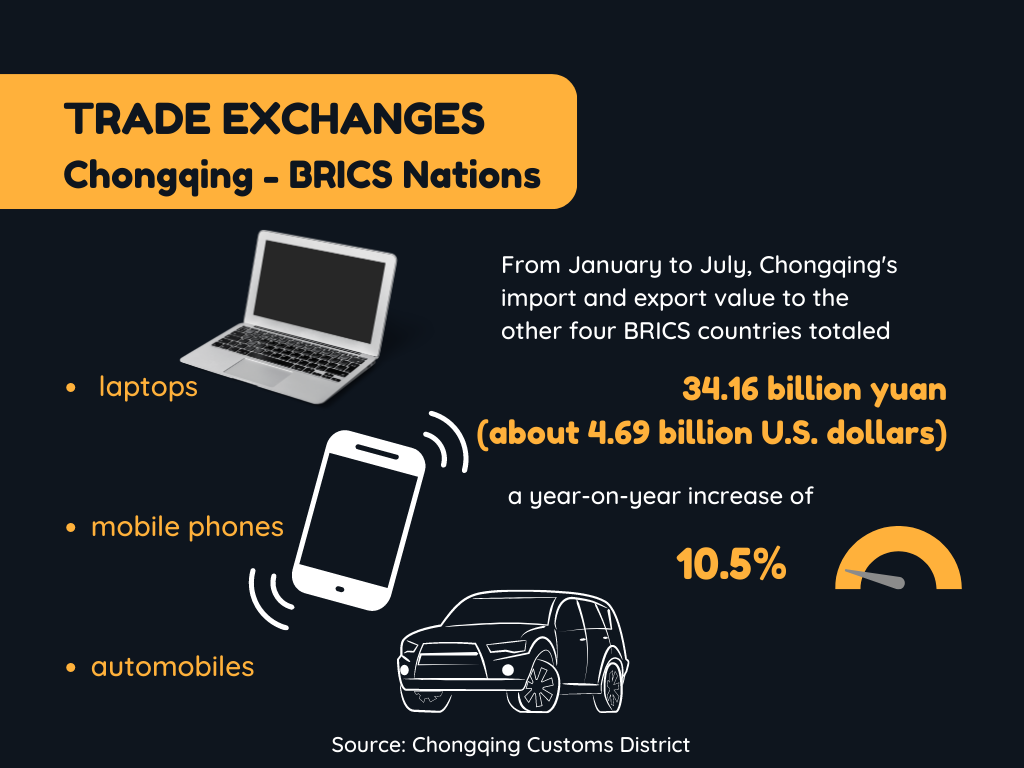 Bridging News
Bridging News
Chongqing Reports 10.5% Surge in Trade Exchanges with BRICS Nations | Economic Diplomacy
Chongqing - Chinese President Xi Jinping recently attended the 15th BRICS Summit in Johannesburg, South Africa, and called for efforts to deepen business and financial cooperation among BRICS countries to boost economic growth.
BRICS, an acronym for five major emerging economies, includes Brazil, Russia, India, China, and South Africa. It also witnessed remarkable trade and cultural exchanges with Southwest China's Chongqing lately, yielding fruitful outcomes.
According to data released by the Chongqing Customs District, from January to July, Chongqing's import and export value to the other four BRICS countries totaled 34.16 billion yuan (about 4.69 billion U.S. dollars), a year-on-year increase of 10.5%.
The diversity of export commodities is primarily centered around Chongqing's forte, encompassing products ranging from laptops and mobile phones to automobiles.

Chongqing's trade exchanges with BRICS nations from January to July. (Graphics/Chen Zhan)
Parallel to these economic endeavors, Chongqing has also embarked on cultural collaborations. In May 2013, the Sichuan International Studies University (SISU) established the BRICS Studies Institute to foster international and regional studies and facilitate cultural exchanges with nations such as Brazil, Russia, India, and others.
One illustrative initiative undertaken by the institute is the conception of the "International Youth Simulated BRICS Meeting," aimed at stimulating exchanges among young individuals hailing from the BRICS nations. This endeavor serves the dual purpose of fostering interaction between BRICS youth and nurturing skilled professionals who can contribute to the collective growth of BRICS cooperation.

Information of BRICS nations. (Graphics/Chen Zhan)
Accounting for 42 percent of the world's population and a quarter of global GDP, BRICS has been an essential positive and stable force in shaping the international landscape and building a just and equitable world order.
The 15th BRICS Summit that concluded in South Africa on August 24 demonstrates the vibrancy and appeal of the BRICS mechanism and its more significant role in promoting development, safeguarding multilateralism, and improving global governance, according to Xinhua.
 Related Stories
Related Stories